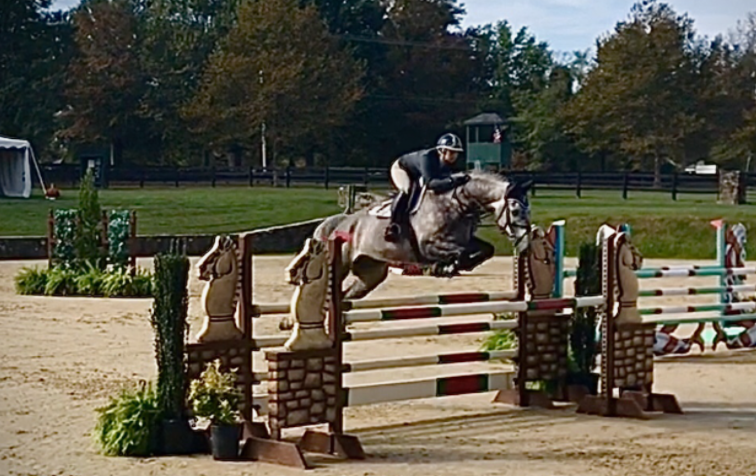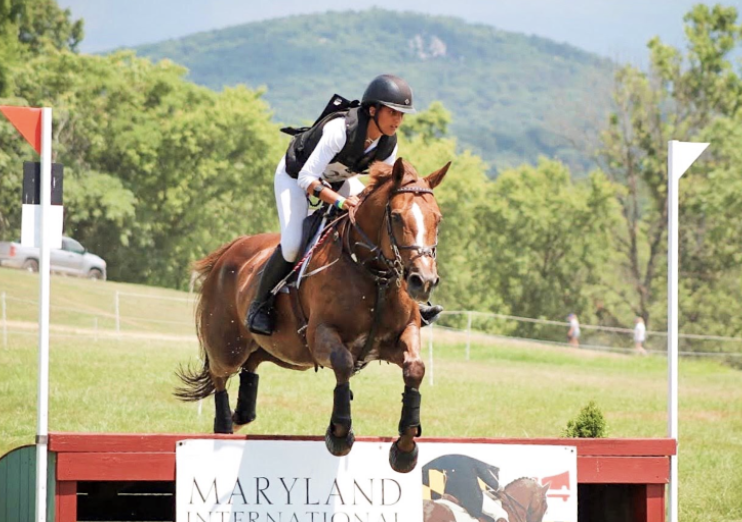The spring semester is starting, and with it, a scramble (at least for me!) to fall into a new routine that balances school, horses, and time for extracurriculars, friends, and sleep… somehow to keep me rested and sane!
Although I’m now entering my final semester of college, I still constantly struggle to strike the “balance” for myself, and often hear my friends in college, or entering college, debating what is right for them. Is bringing your horse the right choice? What other opportunities could you take advantage of? How do you manage so many important factors of your life? What do you prioritize?
While answers to those questions vary for everyone, I reached out to a few of my fellow college student equestrians to hear some of their advice. In this two part series, we’ll connect with students that kept horses involved in their college experience, and then connect with those who prioritized other things over horses. There are a million and one ways to balance riding with other aspects of our lives, and we hope this series will help shed light on how students, in particular, make it work.
Raegan Rast is a senior at Texas Christian University studying marketing and business management. She has ridden on their team for all four years and will use the extra year of eligibility NCAA granted and stay at TCU to complete her masters and ride on the team.
Maya Knowles is a freshman at the University of Kentucky, originally from Virginia, majoring in Animal Science (Pre-Veterinary track). Although she had no desire to go to college and wanted to pursue horses full time, recognizing the benefit college can bring has led her to balance multiple responsibilities, including online classes, working two jobs, and riding.
Colin Gaffney is currently attending the University of Kentucky, studying civil engineering. He rides with Richard Picken and Joanie Morris at Four Schools Farm in Paris, Kentucky.
Jeri Ryan is a graduate of Lord Fairfax Community College and George Mason University, where she balanced her college course load with a full time working student position with Paige Cade.
How did you decide to keep riding through school?
Raegan, Maya, Jeri, and Colin have all either committed to the school team or brought their horse with them throughout their entire time in school. Once she found out she could go to school while continuing to ride, Raegan knew she had to take the opportunity. Similarly, Maya chose to take her horse to school as a stress reliever, recognizing that “No matter how bad a day is, I let all my worries go as soon as I get in the saddle.”
Colin felt the time crunch. With a promising horse, he knew that “You only have so much time with a horse so it’s important to take advantage of all of it if you want to be the best possible you can as a pair.” While taking a year off of school to become a working student could be possible, Colin thought it was unlikely for him to go back to school if he took the time off. Jeri also felt that continuing to work in the horse industry was important to her, explaining that she “decided to keep riding and working through school to gain as much knowledge as possible riding-wise, and to further my career as a professional horse trainer.”

Jeri Ryan balanced a busy schedule as a student and full time working student to prepare for a career in the horse industry.
What is a typical day like for you?
Days begin early for this group of students, often with alarms set well before 7 AM. Although every day is different, a common theme among the students’ schedules is in scheduling classes in chunks of time to allow for the mornings or evenings to be spent at the barn.
On top of classes and training, students are balancing jobs, workouts, and social time with friends. Coffee was mentioned more than once in schedules, which is no surprise with such active days!
In what ways do you get involved in school activities?
Although balancing school and riding doesn’t leave much extra time for other activities, many of the students interviewed found ways to get involved in equestrian and non-equestrian related opportunities in school.
Raegan, Maya, and Colin are heavily involved in their school’s riding teams. Colin enjoys being on the team as it “connects eventers who attend the University whether [they] have a horse or not. It is a great way to meet people who you can be with at shows and interact with on campus.”
Maya is additionally involved in the Pre-Vet club, the Agriculture Business club, and the Livestock Judging team. However, the students interviewed commented on the limited time to participate in activities outside of horses.
 Maya Knowles has found ways to get involved within and outside of horses at her school.
Maya Knowles has found ways to get involved within and outside of horses at her school.
Photo by GRC
What is one piece of advice you have for someone bringing a horse to school?
The overall secret? Time management and teamwork!
Maya suggests that you have a planner to ensure you have time for both your horse and your studies (I definitely agree!). As Maya has experienced: “Having a planner with my schedule for each day/week helped reduce my stress level a ton! Plus, crossing things off as you complete them is super satisfying.” As Jeri suggests, “look at your schedule and set aside time to ride [your own horse] or to just be with them.” Scheduling that time into your planner can “make you much happier if you can spend 15 minutes with your horse than stressing about school all the time.”
The students emphasized that on top of managing your time is the necessity of having a good support network. As Colin suggests, “Make sure to keep your horse at a barn where they will have your back and help you if you need it. Sometimes school can get busy and having someone able to ride your horse one day for you when there are multiple tests that day can be an amazing help.”
Thank you to these college equestrians for sharing their tips and experience of riding throughout college! Next time, we’ll meet a few students who chose to find a balance between college and riding without bringing a horse with them to school.
